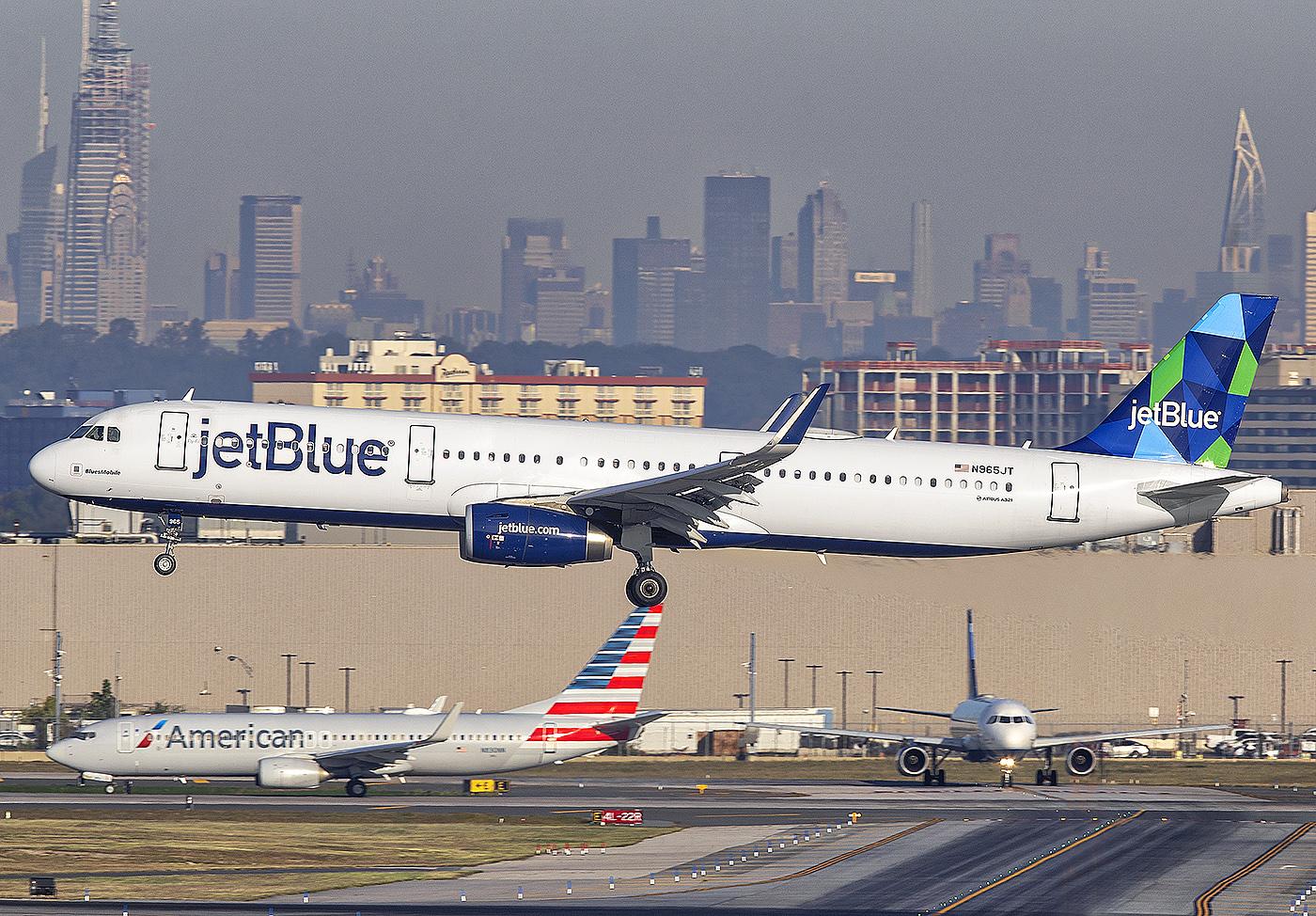Daily Memo: An Abrupt End For The American Airlines-JetBlue Northeast Experiment

As the shock of the decision by a U.S. judge ordering American Airlines and JetBlue Airways to dissolve their alliance wears off, the airlines now find themselves weighing an appeal or dismantling a partnership they’ve consistently characterized as a game-changer for their competitive positions in the U.S. Northeast.
When the two airlines launched their Northeast Alliance (NEA) in early 2021, it was an unprecedented tie-up in the U.S. domestic market. Indeed, in his lengthy ruling that sided with the U.S. Justice Department (DOJ), District Judge Leo Sorokin concluded carriers in the U.S. “have not historically attempted arrangements that intertwine their operations so broadly with other domestic airlines. This is at least partly due to a general understanding across the industry that such coordination would run afoul of antitrust law.”
Under the NEA, American and JetBlue coordinate schedules at Boston Logan and airports in the New York City metro area in a partnership designed to operate for a minimum of seven years from the initial signing.
In the May 19 ruling, the judge ordered the airlines to end their partnership within 30 days, which TD Cowen analyst Helane Becker pointed out is unfortunate timing, “as we are heading into the busy summer season and tickets have already been sold on NEA flights.”
“We aren’t convinced they [American and JetBlue] will appeal,” Becker said, given JetBlue’s pending merger with Spirit Airlines. The DOJ has also sued to block that tie-up.
The break-up of the partnership will be a significant setback for each airline. In early 2022, JetBlue president Joanna Geraghty noted the airline had hit an outstanding milestone with the NEA, explaining JetBlue had reached $100 million in codeshare revenue in the alliance’s early stages. JetBlue executives have also said the partnership became “measurably margin positive” in the second half of 2022.
In April, daily departures covered under the NEA from New York JFK reached roughly 290, with JetBlue operating 190 of the flights. Their combined operations from LaGuardia reached 190, with JetBlue operating 52 of the daily departures. From Boston, JetBlue in April operated 150 of the 220 daily departures covered under the NEA. There are roughly 700 daily departures covered in the agreement.
“There are so many leisure markets out of New York that we never had the ability to serve before without taking them away from something else, and we can do that now,” JetBlue CEO Robin Hayes said earlier this year.
American, which has historically struggled in the New York market, also cited revenue upside from the partnership. During a financial conference in May of last year, the airline’s Chief Commercial Officer Vasu Raja said American’s unit revenue improvement in New York had grown sequentially each month. “We’re starting to see signs where it is growing sequentially and even sometimes at a greater rate than the rest of the system, which in our domestic system is no small shakes,” Raja said.
Raja—described by the judge as the NEA’s “architect”—said he’s been examining American’s performance in New York for a long time, and “I’ve never seen New York unit revenue performance outpace the system.”
Over the last two decades, American has lost market share in New York and hasn’t been profitable there, Becker noted, calling the NEA its “best hope to maintain a presence in New York to feed its Oneworld partners who fly into the region.”
According to the ruling, American has leased nearly 100 of its slots at JFK and LaGuardia to JetBlue. Raymond James analyst Savi Syth said in a report that while American would likely regain those slots leased to JetBlue, “it will now have to rebuild JFK and LaGuardia at likely lower profitability given its reliance on regional jets and with the lack of feed from JetBlue.”
In 2021, JetBlue decided to delay the retirement of its Embraer E190 to support the NEA. Syth noted that investments made in the partnership, including extending its E190 operations, would unlikely be recouped. Aviation Week Network’s Fleet Discovery database shows JetBlue operates 44 E190s, with an additional two parked/in reserve, two parked and 11 in storage.
A dissolution of the NEA would be a positive for American and JetBlue’s rival Delta Air Lines, which has hubs in both JFK and LaGuardia, Becker said. “American and JetBlue would need to order significant amounts of equipment in order to compete effectively, and Delta would have to stand still to allow others to catch up,” she said.
Outmaneuvering Delta was a significant motive behind the alliance in the first place, the ruling notes. “The record establishes that a primary goal—and a significant concern—motivating both American and JetBlue to pursue a partnership was a mutual desire to address the competitive threat they each perceived Delta presented in markets they deemed important,” the judge wrote.
Another beneficiary of a dissolved NEA would be United Airlines, Becker concluded, given the airline didn’t retire older widebody jets during the coronavirus pandemic, and is now in a position to continue to grow Newark as a domestic and international hub.
American and JetBlue are each considering next steps, according to statements.
Sorokin’s decision is now also spurring questions regarding the fate of JetBlue’s merger with Spirit. The DOJ will attempt to score another antitrust victory in the U.S. airline sector when the agency squares off against JetBlue and Spirit in court beginning in October.
“We do not believe the merger will ultimately receive regulatory approval, in part because of the Justice Department’s suit to block it, but also because at least four state attorneys general joined the lawsuit to block [it],” Becker said.
When the second DOJ suit was announced, JetBlue remained bullish in its outlook for the merger, which it had called “absolutely complementary” to the alliance. After the trial date was set for the fall, the carrier appeared unsurprised by another legal battle, saying, “We have always accounted for a DOJ lawsuit in our timeline to close the transaction in the first half of 2024, and our integration team continues to work according to this timeline.”
Now as it awaits the start of another antitrust case, one of JetBlue’s key strategies for remaining competitive in the U.S. market has been upended, with no clear path to resurrect the NEA.


Comments
Competition benefits the public. The Government, the Courts are there to protect public interest not to make airline executives jobs easy.
MichaelM